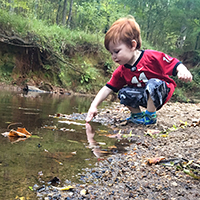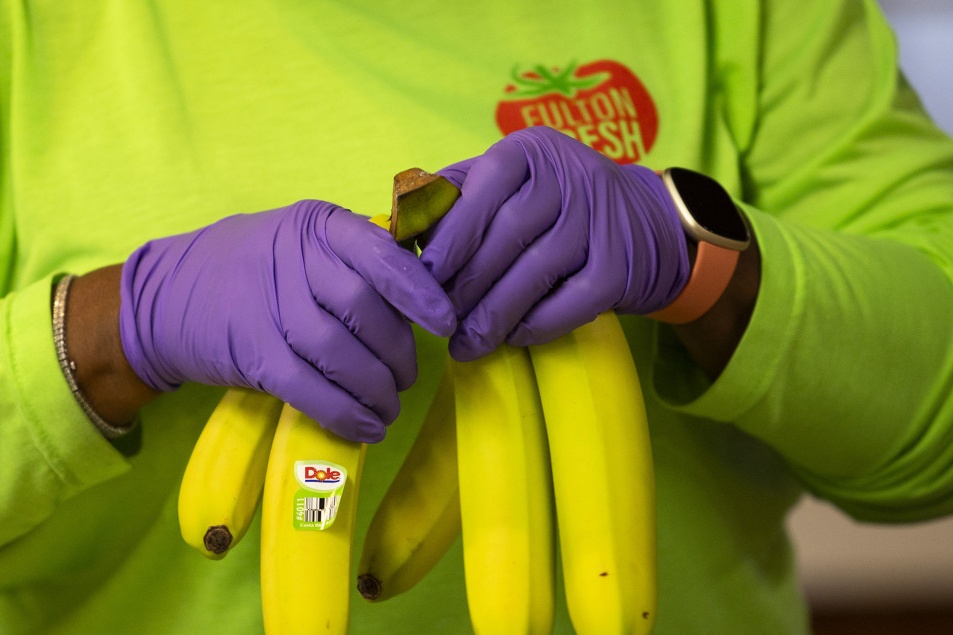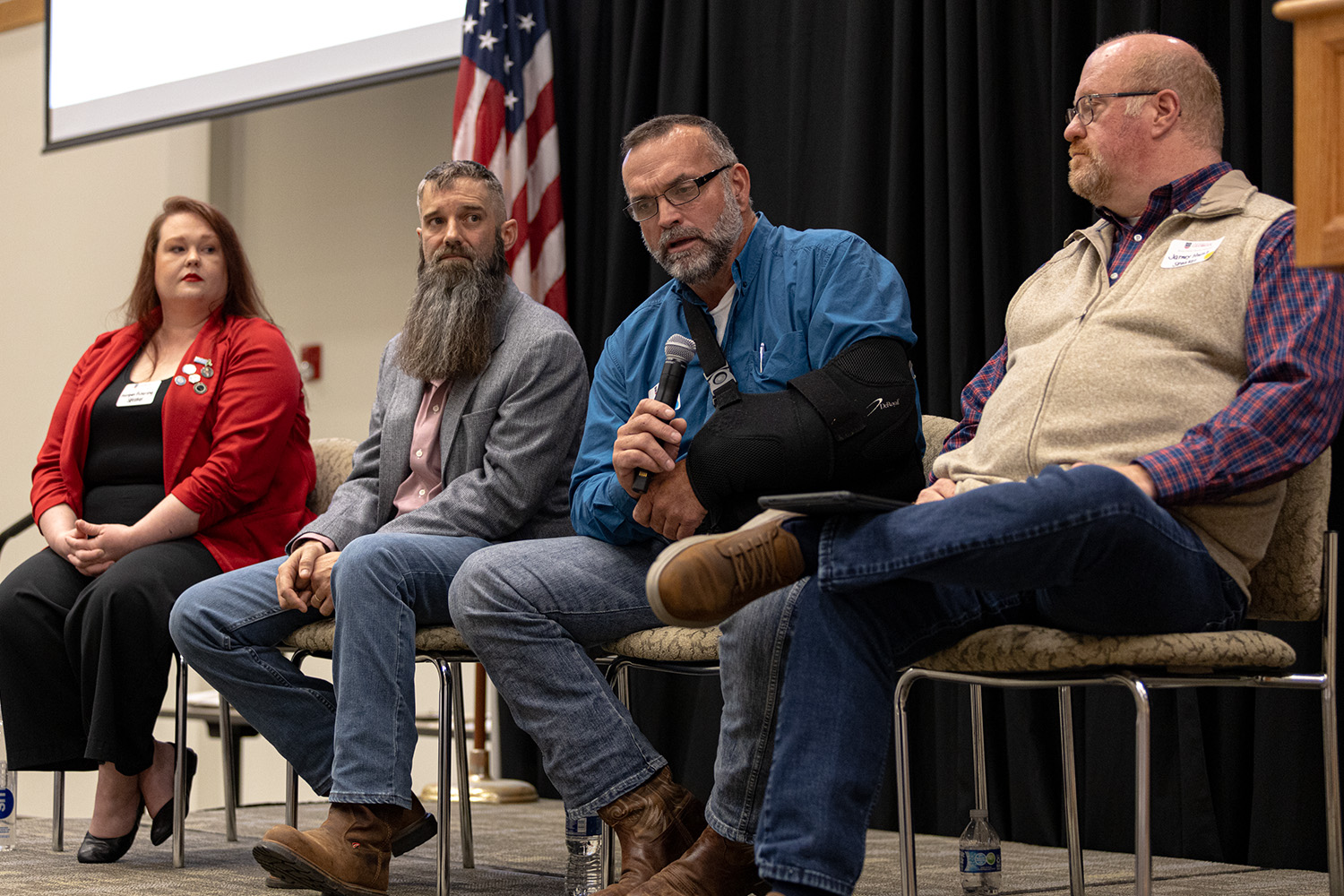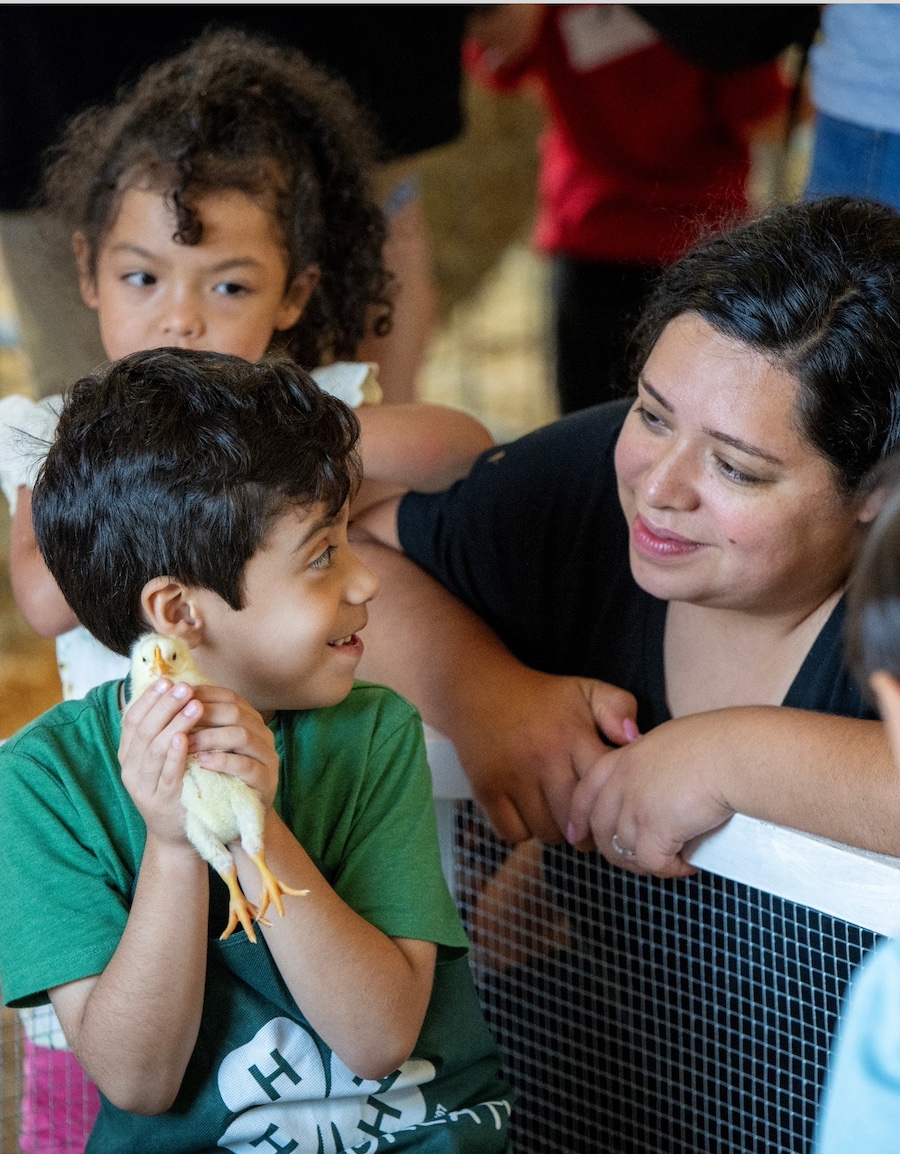It’s been 10 years since author Richard Louv coined the term “nature deficit disorder” to describe children who are developmentally behind because they spend so much time inside.
In the decade since Louv’s book, “Last Child in the Woods,” was published, parents seem to have become more aware of the amount of time their children spend inside with gadgets. However, it also seems that kids’ attachment to their devices has grown stronger, said Nick Fuhrman, an outdoor educator and professor of environmental education in the University of Georgia College of Agricultural and Environmental Sciences.
Known to many as “Ranger Nick,” Fuhrman agrees that nature deficit disorder is a growing problem for young kids and young adults. Even students in classes focused on wildlife education can’t seem to deny the draw of constantly checking their phones, always looking down, and being completely removed from listening to and looking at their environment.
“I am worried that, eventually, people are not going to see the value of being outside,” Fuhrman said. “Awareness is OK, but we have to get to action, which will eventually lead to a sustained behavior change. That is the ultimate goal of environmental education.”
More kids have access to smartphones. Fuhrman believes that the best approach to remedying nature deficit disorder is not to remove the technology, but to use it as a gateway to the outdoors.
Several apps, like iNaturalist, which Furhman recommends, enable parents and children to become citizen scientists. Through their phones, they can observe and photograph unique plants, animals and other organisms, then share them with a network of other peers as well as research teams. These apps can help identify unknown creatures and help users learn about nature.
Fuhrman also added that the biggest benefit to using the smartphone to connect with nature is that it helps the parents to be more comfortable with the scenario as well.
“Parents have to set the model for their children,” he said. “This helps them to be outside with a meaningful purpose.”
To that end, the U.S. Forest Service launched a web campaign at www.discovertheforest.org that provides parents with practical tips for introducing their children to the woods, including lots of mobile-optimized games and activities for families with young children to help them make the leap outside.
Eventually, Fuhrman hopes that individuals will ease out of depending on their phones for entertainment and start leaving them in their pockets or even at home when they are outdoors.
For more on Fuhrman and his Friday Fly-day live series, follow Ranger Nick on Facebook. To see the entire Ranger Nick video series originally aired on the “Georgia Farm Monitor” TV show, please visit www.youtube.com/playlist?list=PLE2nUQSFKhZh4QpKhjBLzvJFvCBiJ8AwI.







